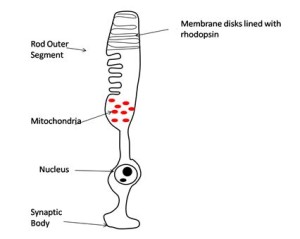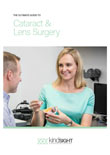A History of the Carrot and Vision
In the Easter spirit, we thought we’d take the time this month to shed some light on a timely old wives’ tale about the carrot and vision. That’s right – the classic carrot and its ability to enhance our eyesight.
So, is it fact or fiction? Are the bunnies of the world onto something? And importantly – should we all be boosting our carrot consumption to ward off nasty vision problems? Here’s our take on it…
You can probably hear your grandfather’s words ringing in your ears – ‘eat your carrots, they’re good for your eyes’. Well, the common saying has some interesting origins, and it all begins back in World War II…
Rumour has it that the eyesight benefits of eating carrots was propaganda spread by the UK’s Ministry of Information around 1940. Why? The British government would order blackouts to make it difficult for the German army to reach its targets when conducting air raids. Simultaneously, it had begun using new technology radars which allowed it to target enemy German aircraft in the dark.
As a cover for achieving superb accuracy under low-lighting conditions using their radar system, the British government spread the information that its armed forces had been consuming carrots by the bucketload, which gave them ‘super-night-vision’. Both the public and even the German army fell for the ‘dangling carrot’ and – even after the war was over – it became a common practice to encourage the consumption of this powerful vegetable.
Orange Goodness
So are these orange legends really just lemons? Absolutely not! Carrots contain beta-carotene, which is an antioxidant that our bodies convert into Vitamin A. Vitamin A is then used to activate a protein called rhodopsin. Rhodopsin is an important part of our photoreceptor ‘rod’ cells, which detect light in conditions of low illumination and transmit signals from our eyes to our brain, hence giving us our night vision.

The Rod Photoreceptor Cell
The Rod Photoreceptor Cell
So if you are deficient in Vitamin A, the cascade effect is that your rod cells will not function effectively, and you may in fact have poor night vision. And if this is the case, eating more carrots really could help. Great news, right? Don’t get too excited though, because there is still a limit to how fabulous our night vision can be.
Our bodies regulate the amount of beta-carotene that it uses to activate our rod cells. So once it has enough, any further consumption won’t continue to improve our night vision. Similarly, increasing rhodopsin levels doesn’t reverse vision loss caused by other eye conditions, such as macular degeneration, glaucoma or cataracts.
So while the vegetable is overall beneficial for Vitamin A intake and subsequent eye health maintenance, it won’t actually give the average, healthy person any improved visual performance.
The verdict on the carrot and vision?
Unfortunately, eating a trailer-load of carrots will not turn you into a superhero with an ‘extreme night vision’ superpower. But hey – a little extra vegetable in your diet, especially at this time of the year, can only be a good thing, right!?


